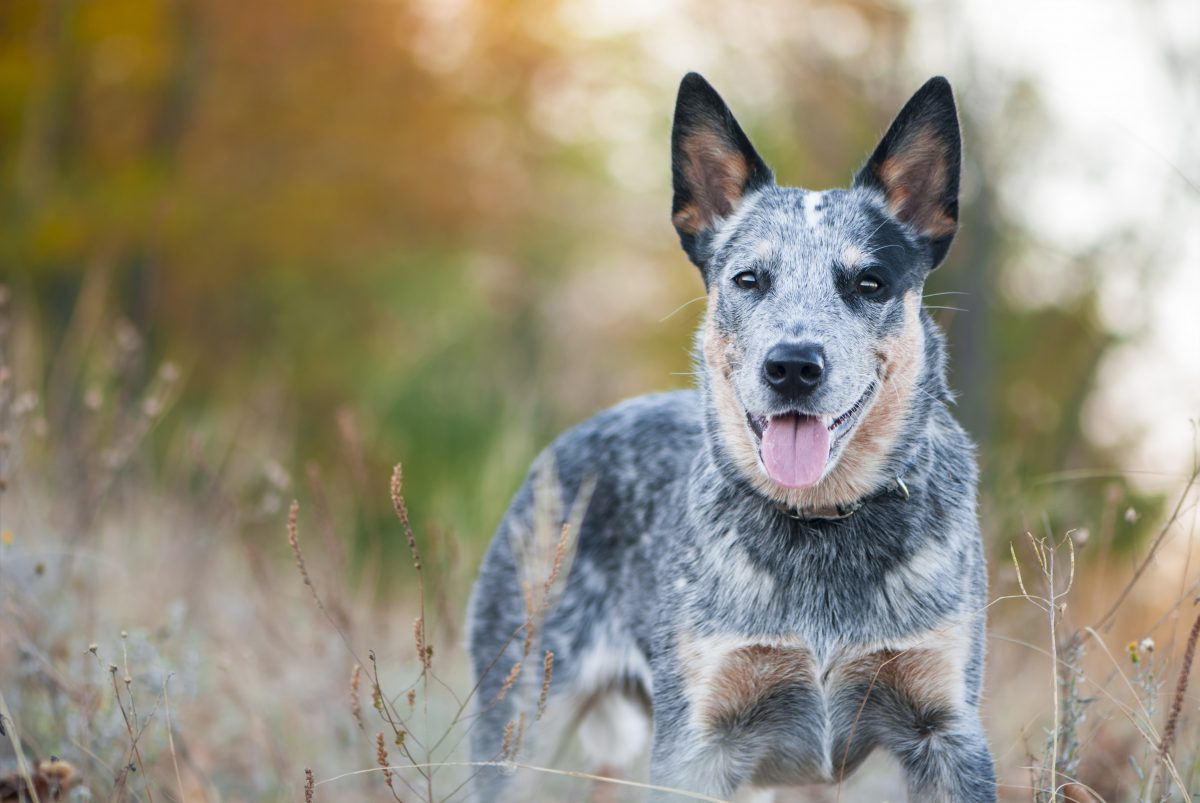What dog breed has the least health problems find out. The Basenji dog breed is known to have the fewest health problems of all dog breeds. Basenjis are generally healthy and have fewer genetic health issues than other breeds.
Their unique genetic makeup contributes to their overall good health, making them a popular choice for dog owners seeking a low-maintenance pet. With minimal health concerns, Basenjis offers an excellent option for individuals looking for a companion requiring less veterinary care and attention.
This breed’s robust health profile and distinctive characteristics make it a favorable choice for families and individuals.
What Dog Breed Has the Least Health Problems Read the full post thoroughly for more details about this.

Credit: canna-pet.com
Introduction To Dog Breeds And Health
When choosing a dog breed, considering their health is crucial. Breeds differ in how prone they are to health problems. Understanding the link between breed and health can help make an informed decision.
Link Between Breed And Health
Some dog breeds are known to have fewer health problems compared to others. Genetics, size, and breeding practices contribute to a breed’s health. Choosing a breed with minimal health issues can lead to a happier and longer life for your furry companion.
Importance Of Choosing A Healthy Breed
- Healthy breeds often require less veterinary care and have lower medical expenses.
- Reduced risk of hereditary conditions can lead to a longer lifespan for your dog.
- Choosing a healthy breed can reduce pet owners’ emotional and financial burdens.

Credit: www.goodhousekeeping.com
Criteria For Evaluating Dog Health
Lifespan Considerations
Different dog breeds have varying lifespans, which is essential when evaluating their health. Genetic predispositions, environmental factors, and overall well-being can influence lifespan. It’s important to consider a breed’s average lifespan when assessing its health outlook.
Common Genetic Disorders
Genetic disorders can significantly impact a dog’s overall health. Certain breeds are more prone to specific genetic conditions, such as hip dysplasia, heart disease, or certain types of cancer. Understanding the common genetic disorders associated with a particular breed is crucial in determining their health status.
What Dog Breed Has the Least Health Problems Click here for more details: Click here
Top Dog Breeds With Minimal Health Issues
When choosing a dog breed, one must consider their potential health issues. Some dog breeds are prone to various health problems, while others are known for their robust health and resilience. Here, we’ll explore the top dog breeds with minimal health issues, providing insights into their unique characteristics and genetic predispositions.
Australian Cattle Dog
The Australian Cattle Dog, also known as the Blue Heeler, is a hardy and robust breed that is relatively free from many common health issues. This breed typically enjoys a long lifespan with minimal genetic health concerns.
Beagle
The Beagle is a small to medium-sized breed known for its friendly disposition and minimal health problems. With proper care and regular exercise, Beagles are generally healthy and have a low predisposition to inherited health issues.

Credit: www.goodhousekeeping.com
Characteristics Of Healthy Dog Breeds
Some dog breeds with minor health problems include the Australian Cattle Dog, Basenji, and the Border Collie. These breeds are generally healthy and have minimal genetic health issues. Regular vet check-ups and a balanced diet can help maintain their good health.
Genetic Diversity
Genetic diversity plays a vital role in a dog’s health. The more genetically diverse a breed is, the less likely it is to suffer from inherited health issues. Inbreeding can lead to a lack of genetic diversity and increase the risk of genetic health problems. Therefore, it’s essential to choose a dog breed with a diverse genetic background.
Physical Attributes
Physical attributes of a dog breed can also have an impact on its health. For instance, breeds with shorter snouts, such as bulldogs and pugs, are more likely to experience breathing problems. On the other hand, breeds with long and narrow snouts, like greyhounds and whippets, are less likely to have respiratory issues. Similarly, larger breeds are more prone to joint problems, while smaller breeds are less likely to suffer from hip dysplasia.
Overall Health And Wellness
Besides genetic diversity and physical attributes, overall health and wellness are crucial for a dog breed to have the most minor health problems. Breeds with a healthy weight, good nutrition, and regular exercise are less likely to develop health issues. Additionally, regular veterinary checkups and preventative care can help detect and address potential health problems before they become severe.
In conclusion, when looking for a dog breed with the fewest health problems, it’s essential to consider genetic diversity, physical attributes, and overall health and wellness. By choosing a breed with these characteristics, you can help ensure your furry companion has a long and healthy life.
What Dog Breed Has the Least Health Problems Also click here for more details about Dog Health: click here
Healthcare Tips For Low-maintenance Breeds
Many potential owners consider the breed’s health and the care it will require when choosing a dog. Low-maintenance breeds are ideal for busy owners who don’t have much time to devote to grooming or veterinary visits. However, even low-maintenance breeds require some healthcare to remain healthy and happy.
Regular Veterinary Check-ups
Regular veterinary check-ups are essential for all dogs, regardless of their breed. However, low-maintenance breeds may require fewer visits than their higher-maintenance counterparts. These breeds typically have fewer health problems but need routine vaccinations, heartworm prevention, and parasite control.
During check-ups, your veterinarian will examine your dog from nose to tail, looking for any signs of illness or injury. They may also recommend additional tests or treatments based on your dog’s age, breed, and overall health.
Diet And Exercise
A healthy diet and regular exercise are crucial for maintaining your dog’s health and well-being. Low-maintenance breeds typically require less exercise than high-energy breeds, but they still need daily walks and playtime to keep them healthy and happy.
When it comes to diet, low-maintenance breeds are generally less prone to obesity and other weight-related health problems. However, feeding them a high-quality diet that meets their nutritional needs is still essential. Your veterinarian can recommend a diet appropriate for your dog’s age, breed, and activity level.
By following these healthcare tips for low-maintenance breeds, you can help ensure your dog remains healthy and happy for years. Regular veterinary check-ups, a nutritious diet, and exercise, are essential to a happy, healthy dog’s life.
Case Studies: Owners And Their Healthy Dogs
Many dog owners wonder which breed is the healthiest, with the fewest health problems. To shed light on this, we’ve interviewed several dog owners to learn about their experiences with healthy dog breeds. These case studies provide valuable insights into the breeds known for their overall good health and longevity.
Interviews With Owners
We contacted dog owners who have enjoyed sharing their lives with remarkably healthy pets. Their firsthand accounts offer invaluable information about breeds with the fewest health issues. The following are some salient insights from our interviews:
- Golden Retrievers and Australian Cattle Dogs are frequently mentioned for their exceptional health and vitality.
- Many owners emphasized the importance of regular exercise, high-quality nutrition, and routine veterinary care in maintaining their dogs’ good health.
- Several owners reported that their dogs lived well into their teens without experiencing major health concerns, highlighting the resilience of certain breeds.
Longevity Secrets Revealed
During our interviews, owners graciously shared the secrets to their dogs’ longevity and overall well-being. Here’s a summary of the standard practices that were credited with promoting exceptional health in these pets:
- Regular exercise: Daily walks, playtime, and mental stimulation are essential for maintaining a healthy weight and strong muscles.
- Nutritious diet: High-quality, balanced meals tailored to the breed’s specific needs are crucial for overall health and disease prevention.
- Routine veterinary care: Regular check-ups, vaccinations, and preventive treatments were consistently mentioned as key factors in maintaining optimal health.
- Healthy lifestyle: Providing a safe and stimulating environment, avoiding exposure to toxins, and minimizing stress were all cited as contributing to the dogs’ well-being.
Choosing The Right Breed For Your Lifestyle
Activity Level Considerations
When deciding on a dog breed, it’s essential to consider the activity level that fits your lifestyle. High-energy breeds like Border Collies and Labrador Retrievers thrive with daily exercise and mental stimulation, while low-energy breeds like Basset Hounds and Bulldogs require less physical activity.
Space Requirements
Space is another crucial factor when choosing a dog breed. Giant breeds such as Great Danes and Bernese Mountain Dogs need ample room to roam, while smaller breeds like Pugs and Chihuahuas are well-suited to apartment living with regular short walks.
Conclusion: Ensuring A Healthy Life For Your Dog
To ensure a healthy life for your dog, consider breeds like the Australian Cattle Dog, Bichon Frise, or Poodle. These breeds are known to have fewer health problems, require fewer vet visits, and offer more quality time with your furry friend.
Commitment To Dog’s Health
Prioritize regular vet check-ups and a balanced diet to maintain your dog’s well-being.
Benefits Of Choosing A Breed With Fewer Health Issues
Selecting a breed with fewer health problems can lead to a longer and happier life for your furry friend.
Making informed choices about your dog’s breed can significantly impact their health and quality of life. By committing to regular vet visits and a nutritious diet, you are prioritizing your dog’s well-being. Opting for a breed with fewer health issues increases their longevity and reduces the chances of costly medical treatments. Recall that happy dogs are healthy dogs!
What Dog Breed Has the Least Health Problems Read the following questions carefully to know this relationship and details
Frequently Asked Questions
What Dog Breed Has the Least Health Problems?
The Basenji dog breed is known to have the fewest health problems of all dog breeds. Basenjis are generally healthy and have fewer genetic health issues than other breeds.
Which Dog Breed Has The Least Health Issues?
The Basenji breed is known for having fewer health issues compared to other breeds.
What Dog Breed Is Generally The Healthiest?
The Border Collie is generally considered the healthiest dog breed due to its robust genetics and active lifestyle.
What Dog Breed Has The Most Health Issues?
English Bulldogs are prone to various health issues due to their unique anatomy, making them the breed with the most health problems.
What’s The Lowest Maintenance Dog Breed?
The Basset Hound is known for being a low-maintenance dog breed due to its short coat and laid-back nature. Regular grooming and minimal exercise make them an excellent choice for those looking for a low-maintenance pet.
What Dog Breed Has the Least Health Problems Why do you need to know about?
Conclusion
To sum up, selecting a dog breed with minimal health issues is crucial for pet owners. Prioritizing breeds known for their genetic robustness can lead to a healthier and happier furry companion. Research and consider factors like predisposed conditions to ensure your dog’s well-being in the long run.

Hello I am Farhana I have been doing research on dogs since last 10 years. I have been doing research on dog special parts or dog food since last 10 years. I have gained knowledge about my dog in these ten years so. I want to blog about it daily.

